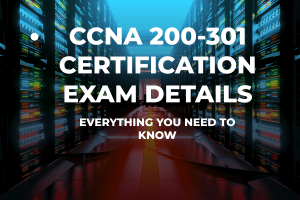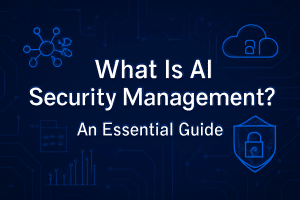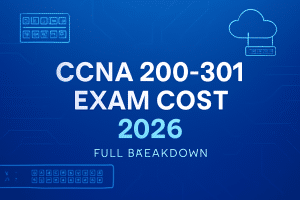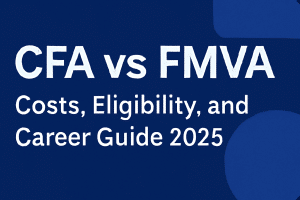More To Explore
More To Explore
Best Networking Certifications in 2026
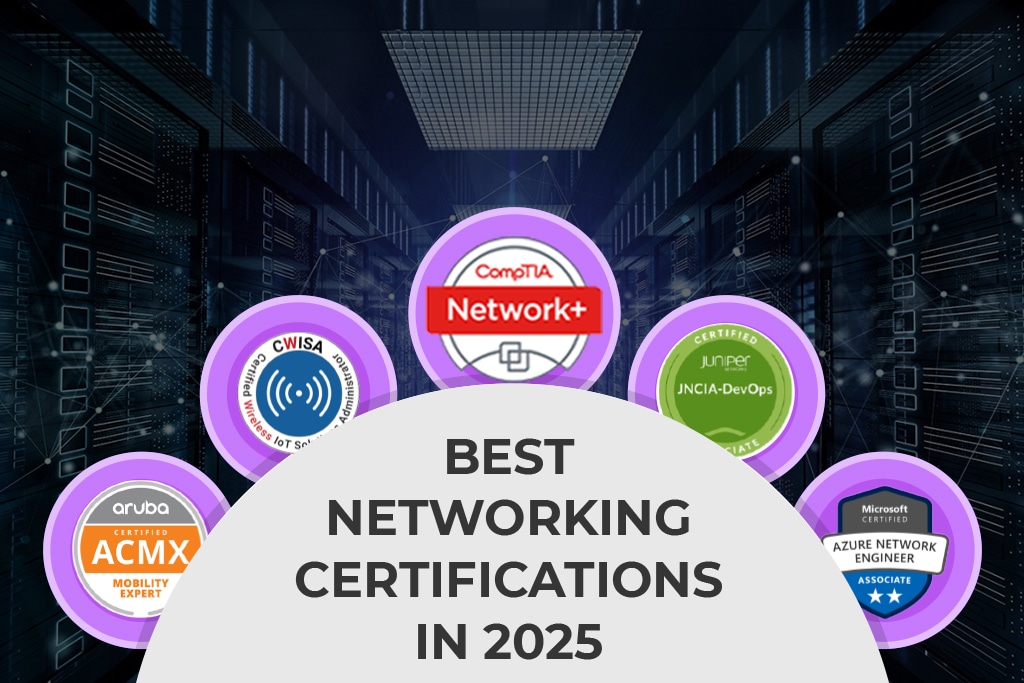
Table of Contents
Networking certifications are more than just badges on your resume—they’re proof that you’re equipped to tackle the ever-evolving challenges of modern IT. In 2025, as organizations rely more heavily on hybrid cloud environments, automation, and secure infrastructures, the demand for skilled networking professionals is at an all-time high. Certifications are your gateway to not only staying relevant but excelling in this competitive industry.
This guide explores the top 10 networking certifications to consider this year. From beginner-friendly options like CCNA to advanced specializations like AWS Advanced Networking and Fortinet NSE 4, each cert offers unique opportunities to grow your skills and boost your career. Whether you’re troubleshooting enterprise networks, securing critical data, or optimizing performance, these certifications will position you as a go-to expert in the field.
Read More: Top IT Certifications in 2025
EXECUTIVE SUMMARY
| Rank | Certification Name | Issuing Authority | Key Focus | Target Audience | Cost |
|---|---|---|---|---|---|
| 1 | Cisco Certified Internetwork Expert (CCIE) | Cisco | Advanced networking, enterprise infrastructure | Experienced network engineers | $1,600 (exam fees) |
| 2 | AWS Certified Advanced Networking – Specialty | AWS | Cloud networking, hybrid environments | Cloud and network specialists | $300 |
| 3 | CompTIA Network+ | CompTIA | Fundamentals of networking | Beginners entering IT networking | $358 |
| 4 | Cisco Certified Network Associate (CCNA) | Cisco | Networking basics, routing, and switching | Entry-level networking professionals | $300 |
| 5 | Juniper Networks Certified Internet Associate (JNCIA-Junos) | Juniper Networks | Junos OS fundamentals, basic networking | Entry-level Juniper specialists | $200 |
| 6 | Microsoft Certified: Azure Network Engineer Associate | Microsoft | Hybrid cloud, Azure networking | Azure and hybrid network engineers | $165 |
| 7 | Fortinet NSE 4 (Network Security Expert) | Fortinet | Firewall security, SD-WAN | Network security engineers | $400 (two exams) |
| 8 | Wireshark Certified Network Analyst (WCNA) | Wireshark University | Packet analysis, troubleshooting | Network analysts and troubleshooters | $299 |
| 9 | Certified Wireless Network Professional (CWNP) | CWNP Organization | Wireless network design, security, and troubleshooting | Wireless networking specialists | $225 |
| 10 | Aruba Certified Mobility Associate (ACMA) | Aruba Networks | Wireless networks, mobility solutions | Entry-level wireless network professionals | $230 |
Our Criteria for Ranking the Best Cloud Computing Certifications for 2025
We took into consideration the following factors while ranking the certifications below:
Career Impact and Demand
- Certifications offering access to high-demand roles and career advancement ranked higher.
- Emphasis on certifications recognized globally by employers across industries.
Industry Relevance
- Certifications aligned with current networking trends, such as cloud networking, wireless solutions, and hybrid environments, were prioritized.
Skill Depth and Practicality
- Certifications focusing on advanced and hands-on skills (e.g., CCIE, AWS Advanced Networking) were given more weight.
Learning Accessibility
- Beginner-friendly certifications (e.g., CCNA, CompTIA Network+) were included but ranked lower compared to specialized or advanced certifications.
Return on Investment (ROI)
- Certifications with high career benefits relative to cost ranked higher.
Breadth of Coverage
- Certifications covering diverse areas like routing, wireless networking, security, and cloud integration were favored.
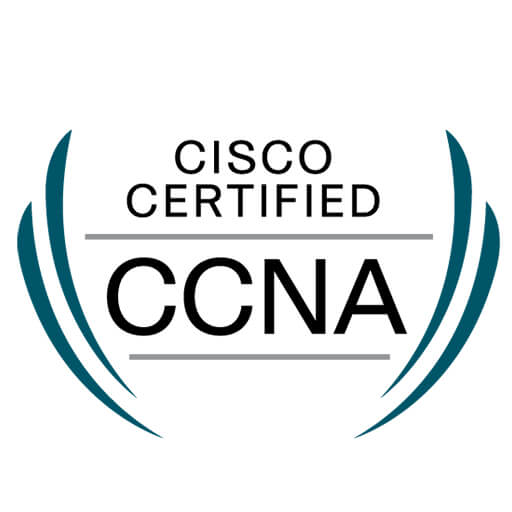
1. Cisco Certified Network Associate (CCNA)
Your Ticket to Networking Fundamentals
When it comes to networking certs, the Cisco Certified Network Associate 200-301 (CCNA) has been the go-to for years. And for good reason—it’s the perfect blend of foundational knowledge, practical skills, and industry recognition. If you’re stepping into the networking world or looking to solidify your skills, CCNA is where most professionals start.
Why Is CCNA So Popular?
Let’s face it, Cisco’s a giant in the networking game. Their gear powers networks across industries—banks, schools, governments, you name it. Earning a CCNA shows employers you’re not just someone who dabbles in networking; you know your stuff.
But CCNA isn’t just about Cisco hardware. Sure, it’s built on their technologies, but the principles you learn apply across the board. It’s why CCNA-certified pros are trusted to design, maintain, and troubleshoot networks everywhere.
What Does the CCNA Cover?
Think of CCNA as the “Networking 101” you never knew you needed. The certification covers a wide range of topics that form the backbone of modern networking:
- Network Fundamentals: Learn how devices connect, communicate, and share data in a network. This includes understanding the OSI model, IP addressing, and subnetting.
- Switching and Routing Basics: CCNA teaches you how to set up and troubleshoot switches and routers—key building blocks of any network.
- Network Security: With cyberattacks growing by the day, even entry-level pros need to understand firewalls, access control, and secure configurations.
- Wireless Networking: Networks aren’t just about cables anymore. CCNA dives into Wi-Fi standards and how to deploy wireless access points.
- Automation and Programmability: Here’s where things get interesting. Networking isn’t all command lines anymore. CCNA introduces tools like Python and REST APIs to automate repetitive tasks.
Who Is It For?
CCNA is designed for beginners and mid-level professionals. If you’re fresh out of college, shifting from IT support to networking, or just looking to validate your knowledge, this cert is for you. You don’t need prior experience, but a basic understanding of computer systems will give you a head start.
The CCNA Exam: What You’re Up Against
The exam, officially called 200-301 CCNA, isn’t something you can wing. Here’s what you need to know:
- Number of Questions: 102–120, depending on the test.
- Format: Multiple-choice, drag-and-drop, and simulation-based questions.
- Duration: 120 minutes.
- Cost: $300, which doesn’t include study materials or retakes.
- Domains: Spanning networking fundamentals, security, IP services, and automation.
Simulation questions are where things get real. You’re presented with a virtual environment and tasked to troubleshoot or configure devices. This separates those who “know” from those who “can do.”
Skills You Walk Away With
By the time you’re done preparing for CCNA, you’ll have mastered:
- Network Configurations: From setting up routers to managing VLANs, you’ll know how to design networks that actually work.
- IP Addressing and Subnetting: No more scratching your head over IPv4 and IPv6—these will become second nature.
- Basic Automation: Using tools like Python to simplify routine tasks, a skill that’s becoming essential in modern networking.
- Troubleshooting: Identifying and fixing issues, whether it’s a misconfigured router or a downed switch.
How Long Will It Take to Prepare?
Prep time varies based on your background. Complete beginners might need 6–8 months of focused study, while those with some networking experience might wrap up in 3–4 months.
Here’s a sample prep plan:
- Weeks 1–4: Study the basics—OSI model, IP addressing, and subnetting.
- Weeks 5–8: Deep dive into switching, routing, and network security.
- Weeks 9–12: Practice labs and simulations to reinforce hands-on skills.
Cisco offers an official training program, but many find value in third-party platforms like CBT Nuggets or Packet Tracer for labs.
What’s the ROI of CCNA?
CCNA isn’t just a paper cert; it’s your entry ticket to jobs like:
- Network Administrator (earning $60K–$80K annually).
- IT Support Specialist with a focus on networking.
- System Engineer roles in small to medium-sized companies.
As you gain experience, your salary can jump to $90K or more. Plus, it’s a stepping stone to advanced certs like CCNP or DevNet, which unlock even higher-paying roles.
Where Does CCNA Fit in 2025?
Networking isn’t what it used to be. With the rise of automation, cloud computing, and SD-WAN, the CCNA has evolved to stay relevant. Cisco has updated the syllabus to include programmable networks, so you’re not left behind in a world moving toward DevOps and cloud-native architectures.
Challenges of CCNA (and How to Overcome Them)
CCNA isn’t a walk in the park. Subnetting alone can feel like learning a new language. But don’t stress—here’s how to handle the tough parts:
- Subnetting Practice: Tools like SubnettingQuestions.com can drill you until it’s second nature.
- Hands-On Labs: Use Cisco Packet Tracer or even physical equipment to practice configurations.
- Simulation Focus: Don’t just memorize theory. Simulation questions are what make or break the exam.
Let’s Explore further, one by one, the top Networking certifications that are going to be the best in 2025.
Note: Below order of certifications is not based on their respective rank. To see rank for each cert, go to Executive Summary Table above.
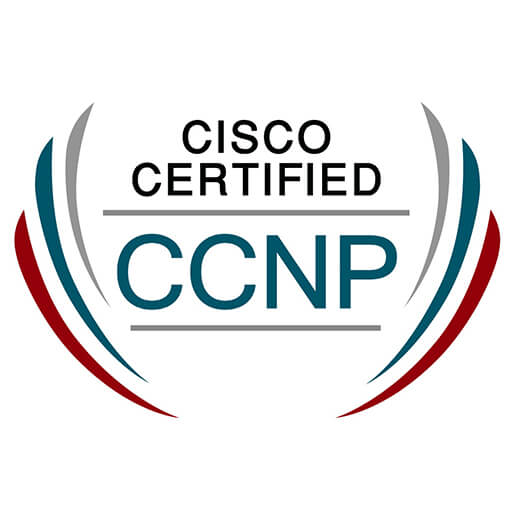
2. Cisco Certified Network Professional (CCNP)
The Next Step for Networking Pros
If CCNA is your entry ticket, the Cisco Certified Network Professional (CCNP) is what takes you deeper into the networking world. It’s not just about knowing the basics anymore—it’s about mastering complex networks and specializing in areas that align with your career goals.
Why Is CCNP Important in 2025?
Networking isn’t what it used to be. Companies are dealing with hybrid clouds, SD-WANs, and automation-driven networks. They’re looking for pros who can handle these complexities. CCNP is Cisco’s answer to that demand.
This cert isn’t a one-size-fits-all deal either. Cisco lets you tailor your CCNP path by choosing concentrations that suit your career—like enterprise networking, security, or collaboration.
What’s Unique About CCNP?
The flexibility of CCNP is what makes it stand out. You don’t just get a generic cert. Instead, you build a specialization that aligns with your career goals:
- CCNP Enterprise: Focused on designing and troubleshooting complex networks.
- CCNP Security: Centers on securing networks and responding to threats.
- CCNP Collaboration: Perfect for pros working with voice, video, and messaging.
- CCNP Data Center: For managing infrastructure in high-demand environments.
No matter which path you choose, you’ll start with a core exam, then move on to a concentration.
The CCNP Exam Structure
CCNP isn’t a single test like CCNA. Here’s the breakdown:
- Core Exam: Covers foundational knowledge for your chosen track. Think of it as the gateway to the concentration exams.
- Concentration Exam: You choose one based on your specialization. For example, Enterprise candidates can opt for topics like SD-WAN or wireless networking.
Each exam costs $400, and you’ll need to pass two to earn the certification.
Who Should Take CCNP?
If you’ve already got some experience with networking and maybe even hold a CCNA, CCNP is your logical next step. It’s for professionals who are ready to tackle more complex networks or specialize in a specific domain.
What You’ll Learn
CCNP builds on the foundational skills from CCNA but dives much deeper. Here’s a taste of what you’ll walk away with:
- Advanced Troubleshooting: Solve complex issues in enterprise-level networks.
- Network Design: Learn to architect networks that scale across multiple sites.
- Security Protocols: Handle threats with VPNs, firewalls, and secure access.
- Cloud Integration: Manage hybrid clouds and SD-WAN setups.
- Automation: Use tools like Python and Ansible for network programmability.
Job Opportunities After CCNP
This cert opens doors to mid and senior-level roles, including:
- Network Engineer: Designing and maintaining enterprise networks.
- Systems Architect: Overseeing large-scale network systems.
- Security Specialist: Managing firewalls and responding to cyber threats.
Salaries range widely based on your specialization, but most CCNP-certified pros make between $80K and $120K annually, with senior roles going even higher.
Study Time and Resources
CCNP is no joke—it’s tougher than CCNA and requires a solid prep plan. Depending on your specialization, expect to spend 4–6 months studying for each exam.
Cisco’s official resources, like the Cisco Learning Network, are a good start, but don’t skip hands-on labs. Simulators like Cisco Packet Tracer or physical lab setups are key to mastering the material. After that, enhance your exam preparedness with Cert Empire’s CISCO Exam Dumps. Go through all the exam questions, practice as much as you can.
Challenges You’ll Face
CCNP dives deep, and without a strong grasp of CCNA-level concepts, you’ll struggle. Here’s how to tackle common hurdles:
- Advanced Troubleshooting: Use Cisco’s Troubleshooting Guides to practice complex scenarios.
- Automation Learning Curve: If you’re not familiar with scripting tools, take a crash course in Python basics.
- Specialization Topics: These exams focus heavily on real-world applications, so hands-on practice is non-negotiable.
Why CCNP Stands Out in 2025
In a world of specialized IT roles, CCNP’s flexibility keeps it relevant. The ability to tailor your certification means you’re not locked into a generalist path. As networks become more complex and software-defined, having a cert like CCNP that embraces these changes is a game-changer.
ROI of CCNP
At around $800 total for both exams, CCNP is pricier than CCNA, but the payoff is big. You’ll qualify for higher-paying roles and stand out in competitive job markets. Plus, with specializations in high-demand areas like security and SD-WAN, your skills will always be relevant.
Global Recognition and Value
CCNP is respected worldwide, making it a solid credential for job seekers in any region. Whether you’re in North America, Europe, or APAC, this cert signals you’re a pro who can handle real-world networking challenges.
Final Thoughts on CCNP
CCNP isn’t just a cert—it’s a statement. It says you’re ready to take on bigger challenges and specialize in areas that matter. Whether you’re focused on enterprise networking, security, or cloud integration, CCNP equips you with the skills and credibility to climb the career ladder.
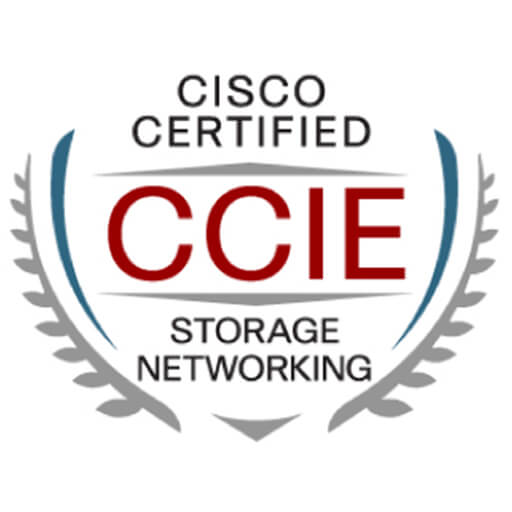
3. Cisco Certified Internetwork Expert (CCIE)
The Pinnacle of Networking Certifications
If CCNA is where you start and CCNP is where you specialize, then CCIE (Cisco Certified Internetwork Expert) is the ultimate goal for networking pros. It’s not just a certification; it’s a career-defining milestone. You don’t pursue CCIE for the title—it’s for the deep respect it commands in the industry.
Why CCIE Matters in 2025
Networking isn’t about connecting a few computers anymore. Today’s systems handle billions of data packets, AI-driven applications, and cloud-based infrastructures. Companies need experts who can architect, troubleshoot, and scale networks that support this complexity. CCIE holders are the pros companies call when there’s a problem no one else can fix.
Who Should Aim for CCIE?
Let’s be real—CCIE isn’t for everyone. It’s designed for experienced professionals who already have a strong grasp of networking fundamentals and even advanced concepts. If you’re already managing large-scale networks or have years of experience under your belt, CCIE is the next logical step.
How CCIE Works
CCIE doesn’t follow the typical certification path of multiple-choice questions and online proctoring. It’s a rigorous process that includes:
- Qualifying Exam: A written exam testing your theoretical knowledge in your chosen specialization.
- Lab Exam: The infamous 8-hour, hands-on lab where you configure, troubleshoot, and optimize real-world network scenarios.
Specializations:
CCIE lets you focus on areas like:
- Enterprise Infrastructure (traditional and SD-WAN networks).
- Security (firewalls, VPNs, and threat defense).
- Data Center (high-density environments).
- Collaboration (voice, video, and messaging).
- Service Provider (large-scale ISP networks).
What Makes the CCIE Lab Exam So Tough?
Here’s why CCIE is known as one of the hardest certifications in IT:
- Time Pressure: You’ve got 8 hours to solve complex, multi-layered problems.
- Hands-On: There’s no guessing—you either know it or you don’t.
- Precision Required: Even small mistakes in configuration can fail you.
Many candidates don’t pass on their first attempt, and that’s okay. The average CCIE holder has invested years in preparation.
Skills You’ll Master with CCIE
CCIE isn’t about memorizing concepts—it’s about becoming a problem solver. By the time you earn the cert, you’ll have expertise in:
- Complex Network Architectures: Designing scalable, fault-tolerant networks.
- Advanced Troubleshooting: Pinpointing and fixing issues in multi-vendor environments.
- Security: Hardening networks against the most advanced threats.
- Automation: Leveraging tools like Ansible and Python to manage large-scale systems efficiently.
How Long Does It Take to Prepare?
This isn’t a cert you cram for. CCIE prep typically takes 12–18 months of dedicated effort. You’ll need a mix of:
- Books: Cisco Press guides are a staple for theory.
- Labs: Renting lab environments or building your own is crucial for practice.
- Study Groups: Joining CCIE-focused forums or communities can be a game-changer.
What Does It Cost?
CCIE isn’t cheap.
- Written Exam: $400.
- Lab Exam: $1,600 per attempt.
- Prep Materials: Renting labs and buying study guides can easily add $2,000–$5,000.
While the costs might seem high, the payoff often makes it worthwhile.
Career Opportunities for CCIE Holders
CCIE-certified pros are some of the most sought-after individuals in IT. Common roles include:
- Network Architect: Designing entire infrastructures.
- Senior Network Engineer: Leading teams to manage enterprise networks.
- Network Consultant: Providing high-level expertise to clients.
Salaries start around $120K and can exceed $200K in senior positions or specialized industries.
Challenges You’ll Face (and How to Overcome Them)
- Sheer Complexity: CCIE covers a vast amount of material. Break your studies into manageable chunks and focus on your weak areas.
- Hands-On Skills: Theory alone won’t cut it. Use tools like Cisco Modeling Labs or physical equipment to practice configurations.
- Time Management: With a full-time job, finding time to study can be hard. Stick to a strict schedule to stay consistent.
Where CCIE Fits in 2025
With automation, software-defined networking, and hybrid cloud setups becoming the norm, CCIE has shifted its focus. Cisco now integrates programmability and SD-WAN into its tracks, ensuring CCIE remains relevant for modern networks.
ROI of CCIE
While the upfront costs are high, CCIE pays off big. The cert not only boosts your salary but also cements your reputation in the industry. Many CCIE holders find themselves leading projects, managing teams, or consulting for high-profile clients.
Final Thoughts on CCIE
CCIE isn’t just a cert; it’s a commitment. It’s for those who want to be the best in networking and aren’t afraid of the grind. If you’re ready to push yourself and take your career to the top, CCIE is the ultimate achievement.
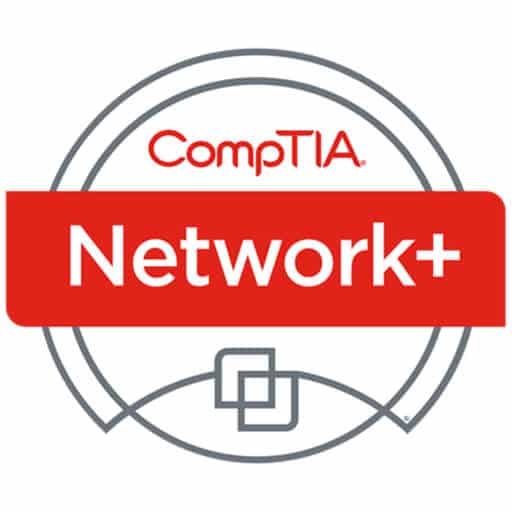
4. CompTIA Network+
The Starter Pack for Networking Basics
If you’re new to IT and networking feels like a foreign language, the CompTIA Network+ is your best friend. It’s designed to build a solid foundation and is often the first cert people earn before diving into more advanced ones like CCNA or CCNP.
Why Network+ Stands Out
Unlike some vendor-specific certs, Network+ is vendor-neutral. This means it’s not tied to any specific company’s hardware or software, making it a versatile option for anyone entering the field. Employers value it because it shows you understand networking fundamentals, no matter the tools being used.
What the Exam Covers
Network+ is all about the basics. Here’s what you can expect:
- Network architecture, including LANs, WANs, and wireless networks.
- Essential protocols like TCP/IP, DNS, and DHCP.
- Troubleshooting techniques for common network issues.
- Basic network security concepts, such as firewalls and access control.
Who Should Take Network+
If you’re just starting out in IT or planning to transition into a networking-focused role, Network+ is perfect. It’s a great first step for roles like help desk technician, junior network administrator, or IT support.
Exam Details
The Network+ exam, code N10-008, is structured to test your understanding of both theoretical and practical networking concepts:
- 90 questions, including multiple-choice and performance-based tasks.
- 90 minutes to complete.
- Costs $358.
Skills You’ll Gain
After earning Network+, you’ll understand:
- How to configure, manage, and troubleshoot basic networks.
- The ins and outs of network protocols and standards.
- The foundational concepts needed for future learning in cloud networking, automation, or advanced security.
Time Commitment and Study Resources
Most candidates spend 8–12 weeks preparing for Network+. CompTIA offers official training materials, but you can also find plenty of free resources online. Platforms like Professor Messer and labs like Cisco Packet Tracer are popular among students.
Job Opportunities After Network+
While it’s an entry-level cert, Network+ can help you land jobs like:
- IT Support Technician (earning $40K–$55K annually).
- Junior Network Administrator.
- System Technician.
Why It’s Relevant in 2025
Networking basics never go out of style, and Network+ keeps updating its content to reflect industry needs. With cloud-based environments and hybrid workforces becoming standard, understanding the core principles of networking is as important as ever.
Challenges You Might Face
While the exam isn’t the toughest, beginners might struggle with technical jargon or performance-based questions. Hands-on practice is key to overcoming these hurdles, so make sure to spend time in virtual labs.
Return on Investment
For under $400, you gain a solid credential that can kickstart your IT career. Even if you don’t stay in networking long-term, the foundational skills you learn with Network+ are valuable across IT roles.
Final Thoughts on Network+
Network+ is like your first pair of running shoes. It won’t take you to the finish line of a marathon, but it will get you started on the right foot. If you’re serious about building a career in IT or networking, this is the cert to start with.
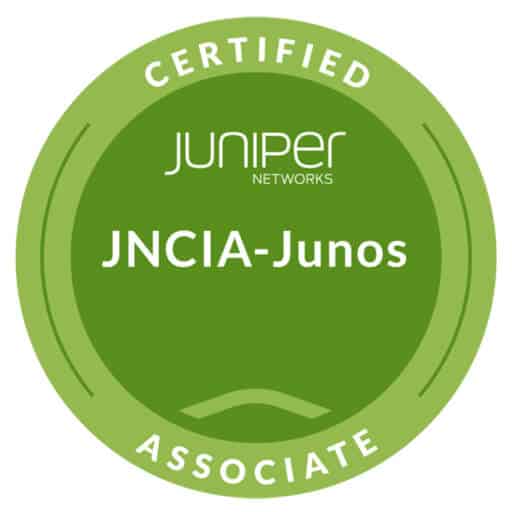
5. JNCIA-Junos
our First Step into Juniper Networking
When most people think of networking certifications, Cisco usually dominates the conversation. But Juniper Networks, with its powerful and scalable solutions, has carved out its own space in the industry. The Juniper Networks Certified Associate – Junos (JNCIA-Junos) is an entry-level certification that serves as the perfect introduction to Juniper’s Junos operating system and basic networking concepts.
Why JNCIA-Junos Matters in 2025
Juniper Networks may not have the same name recognition as Cisco in some circles, but it’s a powerhouse in high-performance networking. Its solutions are widely used in data centers, enterprise networks, and service providers. As more companies look for alternatives to diversify their network ecosystems, professionals skilled in Junos OS are becoming highly sought after.
JNCIA-Junos is critical because it builds foundational knowledge of Juniper’s platforms, while also grounding you in general networking concepts. It’s vendor-specific, yes, but the skills you gain can be applied broadly.
What Does JNCIA-Junos Cover?
JNCIA-Junos focuses on Juniper’s Junos OS, the backbone of its networking devices, and introduces key networking principles. Here’s a breakdown of the key topics:
Junos OS Fundamentals
- Understanding the Junos operating system’s architecture and key components.
- Navigating the Junos CLI (Command Line Interface).
- Working with operational and configuration modes.
Networking Basics
- Core networking concepts like TCP/IP, OSI model, and subnetting.
- Routing and switching fundamentals.
- VLANs and basic layer-2 concepts.
Junos Configuration and Management
- Configuring interfaces and setting up routing protocols.
- Managing devices, including backups and restoring configurations.
Security Essentials
- Basic firewall filters and policies on Juniper devices.
Exam Details
The JNCIA-Junos exam isn’t overwhelming, but it’s thorough. Here’s what you need to know:
- Exam Code: JN0-104
- Format: Multiple-choice questions.
- Duration: 90 minutes.
- Number of Questions: 65.
- Cost: $200.
It’s proctored online or can be taken at a testing center, giving you flexibility in how you choose to attempt it.
Who Should Take JNCIA-Junos?
This cert is perfect for:
- Beginners: Those just stepping into networking.
- IT Professionals: Those transitioning from other vendor ecosystems (e.g., Cisco, Fortinet) to Juniper.
- Junior Engineers: Professionals who work in environments where Juniper devices are deployed.
No prior experience with Junos OS is required, but a basic understanding of networking concepts will make the learning curve smoother.
Skills You’ll Walk Away With
Earning the JNCIA-Junos cert ensures you have:
- Proficiency in using Junos CLI to manage devices.
- Knowledge of routing protocols like OSPF and static routing.
- The ability to configure and troubleshoot Juniper devices.
- A strong grasp of networking essentials that can be applied across vendors.
Job Roles After JNCIA-Junos
While JNCIA-Junos is an entry-level cert, it can open doors to roles like:
- Network Support Technician: Handling Juniper-based networks.
- Junior Network Administrator: Managing smaller setups.
- System Engineer: In environments with mixed vendor devices.
Salaries for roles requiring JNCIA-Junos typically range from $50,000 to $70,000, depending on your location and experience level.
Time Commitment and Study Resources
Most candidates spend about 6–8 weeks preparing for the JNCIA-Junos exam. The amount of time you need depends on your familiarity with networking concepts and command-line interfaces.
Recommended Resources
- Official Study Guide: Juniper Networks provides a free study guide and a recommended course.
- Practice Labs: Use Juniper’s vLabs for hands-on practice. They’re free and let you simulate working on Juniper devices.
- Third-Party Platforms: Sites like CBT Nuggets and Udemy offer video tutorials and exam prep.
Challenges You Might Face
CLI Learning Curve
If you’ve worked with Cisco’s IOS or other vendor interfaces, Junos CLI might feel a bit different at first. Spending time in vLabs will help you get comfortable.
Networking Fundamentals
If you’re brand new to networking, some of the basic concepts might seem overwhelming. Focus on foundational topics like IP addressing and subnetting before diving into Junos-specific material.
Why JNCIA-Junos Is Relevant in 2025
As networks grow in complexity, organizations are looking for multi-vendor solutions to avoid dependency on a single provider. Juniper Networks is a strong competitor in the market, and professionals who understand Junos OS are becoming more valuable. With the rise of cloud computing and service provider networks, JNCIA-Junos is a great way to future-proof your career.
ROI for Your Career
At just $200, JNCIA-Junos is one of the most affordable certifications for beginners. It gives you a vendor-specific edge while also grounding you in general networking principles. This combination makes it a smart investment, especially if you’re working in or planning to work in environments where Juniper devices are deployed.
Final Thoughts
JNCIA-Junos might not have the brand appeal of CCNA, but it’s a powerful certification in its own right. It’s an excellent first step into networking, especially for professionals working in multi-vendor environments or companies using Juniper hardware. The skills you gain go beyond just one vendor, making it a cert that pays off in both knowledge and career opportunities.
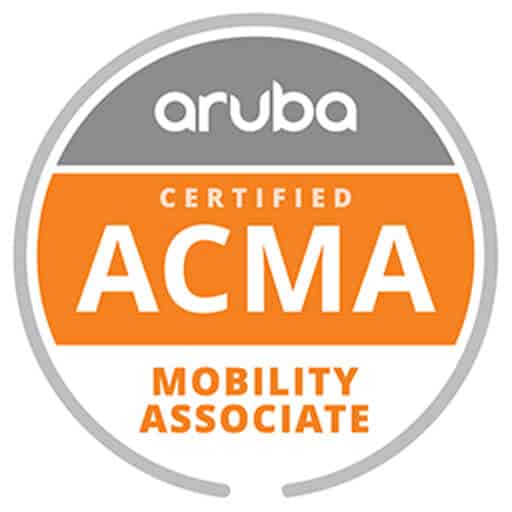
6. Aruba Certified Mobility Associate (ACMA)
Mastering Wireless Networking
As businesses increasingly rely on wireless networks to keep their operations running smoothly, certifications like the Aruba Certified Mobility Associate (ACMA) are becoming essential. Wireless networking isn’t just about plugging in access points anymore—it’s about managing complex, secure, and high-performance mobility solutions. If you’re in IT and want to specialize in wireless networking, ACMA is a top cert to consider in 2025.
Why ACMA Is a Game-Changer
With the rise of IoT, remote work, and BYOD (Bring Your Own Device) policies, wireless networks are now mission-critical. Aruba, a Hewlett Packard Enterprise (HPE) company, has emerged as a leader in wireless and mobility solutions. ACMA certification proves you can design, deploy, and manage Aruba’s wireless networking solutions, which are used by enterprises, schools, and hospitals worldwide.
Employers value ACMA because it validates both vendor-specific expertise and the ability to manage complex wireless environments, making it a strong contender in the networking certification space.
What Does ACMA Cover?
ACMA focuses on wireless LANs, mobility management, and Aruba-specific technologies. Here’s a breakdown of what you’ll learn:
Wireless LAN Basics
- Understanding 802.11 standards and RF fundamentals.
- Learning how wireless communication works, including frequency, bandwidth, and signal interference.
Aruba-Specific Technologies
- Configuring Aruba access points and controllers.
- Working with ArubaOS to manage network traffic and optimize performance.
- Using Aruba Central for cloud-based management.
Network Security
- Implementing WPA3 and Aruba’s security solutions to protect wireless networks.
- Managing user roles and policies to ensure secure access.
Troubleshooting and Maintenance
- Identifying and resolving common wireless networking issues.
- Using Aruba tools to monitor network health and performance.
Exam Details
ACMA is approachable, but it requires a good understanding of wireless networking fundamentals. Here’s what you’re up against:
- Exam Code: HPE6-A70
- Format: Multiple-choice and scenario-based questions.
- Duration: 90 minutes.
- Number of Questions: 60.
- Cost: Approximately $230.
Who Should Pursue ACMA?
This certification is ideal for:
- IT Professionals: Already working in environments with Aruba wireless networks.
- Network Engineers: Looking to specialize in wireless technologies.
- System Administrators: Managing wireless networks for businesses or campuses.
ACMA is considered entry to intermediate level, making it a great stepping stone for those interested in Aruba’s advanced certifications, like the Aruba Certified Mobility Professional (ACMP).
Skills You’ll Master with ACMA
After earning your ACMA certification, you’ll be proficient in:
- Designing and deploying wireless LANs using Aruba technologies.
- Managing and securing wireless networks for enterprise environments.
- Optimizing performance through Aruba’s tools and best practices.
- Troubleshooting RF issues and connectivity problems effectively.
Career Opportunities After ACMA
Wireless networking is a growing field, and ACMA-certified professionals are in demand. Common roles include:
- Wireless Network Engineer: Specializing in the design and deployment of wireless solutions.
- Network Administrator: Managing Aruba-based networks for businesses or campuses.
- Technical Support Engineer: Providing support for wireless issues.
Salaries for ACMA-certified professionals typically range from $70,000 to $100,000, depending on experience and job role.
Study and Preparation
Most candidates spend 6–8 weeks preparing for the ACMA exam. Hands-on experience with Aruba devices is key to mastering the material.
Recommended Resources
- Aruba Training Programs: HPE offers official training courses that align directly with the exam objectives.
- Lab Practice: Set up a small wireless network using Aruba devices or simulations to gain practical experience.
- Third-Party Platforms: Training platforms like Udemy and Pluralsight provide supplemental learning options.
Challenges You Might Face
Wireless Networking Complexity
If you’re new to wireless networks, understanding RF basics and 802.11 standards can be tricky. Focus on foundational topics before diving into Aruba-specific material.
Hands-On Experience
Aruba devices can be expensive, making hands-on practice difficult for some candidates. Consider using Aruba’s cloud-based tools for virtual training.
Why ACMA Is Relevant in 2025
Wireless networks are the backbone of modern businesses, and Aruba is one of the leading providers of these solutions. With ACMA, you’re not just learning to manage wireless networks—you’re mastering technologies that are shaping the future of mobility and connectivity.
Aruba’s focus on cloud-based management and IoT integration ensures that ACMA-certified professionals are prepared for emerging trends in networking.
ROI for Your Career
At around $230, ACMA is affordable compared to other networking certifications. The skills it provides—combined with the increasing demand for wireless specialists—make it a valuable investment for your career.
Final Thoughts
ACMA is an excellent choice for IT professionals looking to specialize in wireless networking. It’s practical, relevant, and vendor-specific while still building on universal wireless principles. If you’re serious about a career in networking and want to dive into the growing field of mobility solutions, ACMA is a must-have certification.
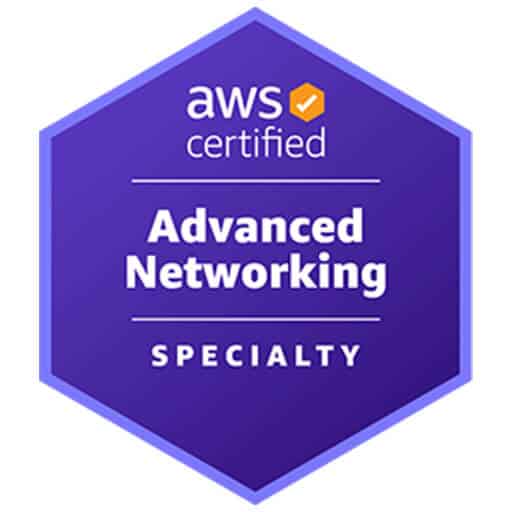
7. AWS Certified Advanced Networking Specialty
Mastering Cloud Networking
The AWS Certified Advanced Networking – Specialty certification is a standout choice for networking professionals in 2025. As more organizations migrate to cloud environments, the demand for experts who can design, implement, and manage complex network architectures in the cloud is surging. This certification dives deep into AWS-specific networking solutions while ensuring you have a solid grasp of general networking concepts applied to hybrid and multi-cloud setups.
Why AWS Advanced Networking Is Crucial
Cloud computing isn’t just a trend—it’s the backbone of modern IT. AWS, as the market leader, powers a significant share of cloud-based infrastructures. Networking in these environments comes with unique challenges like scalability, security, and hybrid connectivity. This cert proves you’re not just aware of these challenges—you can solve them.
Employers value this certification because it combines cloud expertise with advanced networking skills. Whether it’s managing VPNs, configuring Direct Connect, or optimizing traffic for global users, this cert positions you as the go-to expert for cloud-native and hybrid network environments.
What Does AWS Advanced Networking Cover?
This certification isn’t for beginners. It assumes you already have a solid foundation in networking and dives into advanced topics that reflect real-world scenarios.
Core Topics Covered
- Hybrid Network Architectures: Designing seamless connectivity between on-premises data centers and AWS.
- Routing and Load Balancing: Configuring Route 53 and Elastic Load Balancers for optimal traffic management.
- Automation: Using AWS tools like CloudFormation and CLI for network automation.
- Security and Compliance: Configuring VPCs, VPNs, and network firewalls to meet industry standards.
- Network Performance Optimization: Reducing latency and improving throughput in global environments.
Exam Details
The AWS Advanced Networking exam is challenging, designed to test your ability to handle complex scenarios:
- Exam Format: Multiple-choice and multiple-response questions.
- Duration: 170 minutes.
- Cost: $300.
- Domains: Covers advanced networking, automation, hybrid IT connectivity, and troubleshooting.
This is a proctored exam and can be taken at a test center or online.
Who Should Pursue This Certification?
This cert is ideal for experienced networking and cloud professionals. It’s not for beginners, as AWS recommends that candidates have:
- 5+ years of networking experience.
- A solid understanding of AWS core services like EC2, S3, and VPC.
- Hands-on experience implementing AWS solutions in production environments.
Common candidates include:
- Network Architects: Designing hybrid and multi-cloud solutions.
- Cloud Engineers: Specializing in AWS networking tools and technologies.
- DevOps Professionals: Automating and scaling cloud networks.
Skills You’ll Master
After earning the AWS Advanced Networking certification, you’ll be able to:
- Design and deploy scalable, fault-tolerant network architectures in AWS.
- Implement secure connections using VPNs, Direct Connect, and Transit Gateway.
- Troubleshoot complex network performance issues.
- Automate network configurations using tools like Terraform and AWS CLI.
Career Opportunities
This certification opens doors to high-level roles that focus on cloud-native and hybrid networks:
- Cloud Network Architect: Building scalable and secure architectures in AWS.
- DevOps Engineer: Automating and optimizing cloud networks.
- Hybrid IT Specialist: Managing connectivity between on-premises and AWS environments.
Salaries for professionals with this cert typically range from $120,000 to $150,000, depending on experience and role.
Study and Preparation
AWS Advanced Networking is tough, so plan on dedicating 3–6 months of focused study, especially if you’re new to cloud environments.
Recommended Resources
- AWS Training and Certification Portal: Official courses aligned with the exam objectives.
- AWS Whitepapers: Focus on VPC, Direct Connect, and hybrid architectures.
- Hands-On Practice: Use AWS Free Tier to set up and test network configurations.
- Third-Party Platforms: Platforms like A Cloud Guru and Whizlabs offer detailed prep courses and practice exams.
Challenges You Might Face
Cloud-Specific Networking Concepts
If your background is in traditional networking, concepts like VPC peering, Transit Gateway, and global accelerator may feel overwhelming. Spend extra time mastering AWS-specific tools and services.
Exam Scenarios
The exam focuses heavily on real-world scenarios, so rote memorization won’t cut it. Hands-on practice is essential to understand how to apply theoretical knowledge.
Why AWS Advanced Networking Is Relevant in 2025
As organizations increasingly adopt hybrid and multi-cloud strategies, the ability to manage complex networking setups in AWS is more valuable than ever. With AWS leading the cloud market, this cert ensures you stay ahead of the curve in terms of technology and demand.
ROI for Your Career
At $300, this cert is a worthwhile investment for experienced professionals. It’s a powerful addition to your resume and positions you as an expert in one of the fastest-growing areas in IT.
Final Thoughts
The AWS Certified Advanced Networking – Specialty certification isn’t for the faint of heart, but it’s worth the effort. It’s one of the most respected cloud networking certifications, offering advanced skills and the credibility to tackle complex projects. If you’re serious about advancing your career in cloud networking, this cert is a must-have.
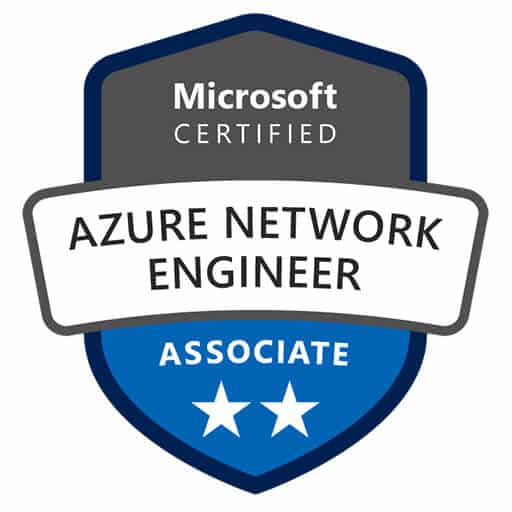
8. Microsoft Certified: Azure Network Engineer Associate
Mastering Networking in Azure
As businesses increasingly adopt Microsoft Azure for their cloud needs, the demand for professionals who can design, secure, and maintain Azure network infrastructures is skyrocketing. The Microsoft Certified: Azure Network Engineer Associate certification is tailor-made for IT professionals who want to specialize in Azure-based networking solutions.
This certification proves you have the skills to manage hybrid cloud networks, ensure secure connections, and optimize performance in Azure environments—making it a critical credential in 2025.
Why Azure Network Engineer Associate Matters
Microsoft Azure is a major player in the cloud computing market, second only to AWS in global adoption. Organizations running on Azure need professionals who can handle the unique challenges of its ecosystem. This cert validates that you understand Azure-specific networking tools and can effectively use them to build, maintain, and secure scalable cloud infrastructures.
In 2025, the ability to manage hybrid environments—seamlessly integrating on-premises networks with cloud resources—is becoming increasingly valuable. Azure’s focus on enterprise-grade solutions makes this certification especially relevant for mid to large-sized businesses.
What Does This Certification Cover?
The Azure Network Engineer Associate cert is highly focused on the unique demands of cloud-based and hybrid networking. Here’s what you’ll learn:
Designing and Implementing Azure Networks
- Configuring Virtual Networks (VNets), subnets, and peering.
- Understanding Azure load balancers and traffic manager.
- Managing name resolution with Azure DNS.
Security and Compliance
- Configuring network security groups (NSGs) and firewalls.
- Implementing Azure Private Link and Azure Virtual Network NAT for secure connectivity.
- Managing compliance for data transfer and encryption.
Hybrid Networking
- Setting up VPN Gateway and ExpressRoute for hybrid connectivity.
- Ensuring seamless integration between on-premises and cloud resources.
Monitoring and Troubleshooting
- Using Azure Network Watcher for diagnostics.
- Identifying and resolving latency and connectivity issues.
Exam Details
Certification Exam
- Exam Code: AZ-700
- Duration: 120 minutes.
- Format: Multiple-choice, drag-and-drop, and case study-based questions.
- Number of Questions: 40–60.
- Cost: $165.
This is a single-exam certification, making it relatively straightforward to achieve compared to other multi-step certifications.
Who Should Pursue This Certification?
This cert is ideal for IT professionals who:
- Work with Azure environments and want to deepen their expertise.
- Are transitioning from traditional on-premises networking to cloud-based solutions.
- Hold foundational certifications like Azure Administrator Associate and want to specialize further.
Common roles for candidates include:
- Cloud Network Engineer
- Azure Solutions Architect
- IT Administrator managing hybrid networks
Skills You’ll Gain
By earning this certification, you’ll become proficient in:
- Configuring and securing Azure VNets for scalable applications.
- Deploying hybrid connectivity solutions like VPN Gateway and ExpressRoute.
- Troubleshooting connectivity and performance issues using Azure tools.
- Ensuring compliance with data security and privacy regulations.
Career Opportunities
Azure Network Engineer Associate-certified professionals are in demand across industries, particularly in organizations heavily invested in Microsoft’s ecosystem. Common roles include:
- Cloud Network Engineer: Managing Azure-specific networking solutions.
- Hybrid IT Specialist: Integrating on-premises and Azure networks.
- Infrastructure Engineer: Overseeing networking in cloud-first architectures.
Salaries for these roles typically range from $85,000 to $120,000, with higher earnings for experienced professionals in hybrid environments.
Study and Preparation
Preparation Time
Most candidates spend about 8–12 weeks preparing for the AZ-700 exam, depending on their familiarity with Azure.
Recommended Resources
- Microsoft Learn: Free modules tailored to the exam objectives.
- Official Course AZ-700: Paid training that provides a deep dive into exam topics.
- Hands-On Labs: Use Azure Free Tier to practice deploying and managing networks.
- Third-Party Platforms: Platforms like Pluralsight and Udemy offer affordable training materials.
Challenges You Might Face
Hybrid Networking Complexity
Setting up VPN Gateway and ExpressRoute can feel overwhelming if you’re new to Azure. Hands-on practice in labs is essential for mastering these concepts.
Exam Scenarios
The AZ-700 exam includes case studies that require a deep understanding of Azure networking tools. Focus on applying concepts rather than just memorizing facts.
Why Azure Network Engineer Associate Is Relevant in 2025
As more organizations adopt hybrid and multi-cloud strategies, expertise in Azure networking is becoming indispensable. This certification ensures you’re prepared to handle the unique challenges of Azure environments, from securing VNets to integrating on-premises resources.
With Azure continuing to dominate enterprise IT, this cert positions you as a valuable asset in the job market.
ROI for Your Career
At $165, the Azure Network Engineer Associate cert is affordable compared to other advanced networking certifications. Its focus on hybrid and cloud-native networking solutions ensures strong career prospects, making it a smart investment for professionals working with Azure.
Final Thoughts
The Microsoft Certified: Azure Network Engineer Associate certification is a must-have for professionals managing Azure environments. It’s practical, comprehensive, and tailored to the real-world demands of cloud-based and hybrid networks. If you’re serious about advancing your career in cloud networking, this cert is an excellent choice.
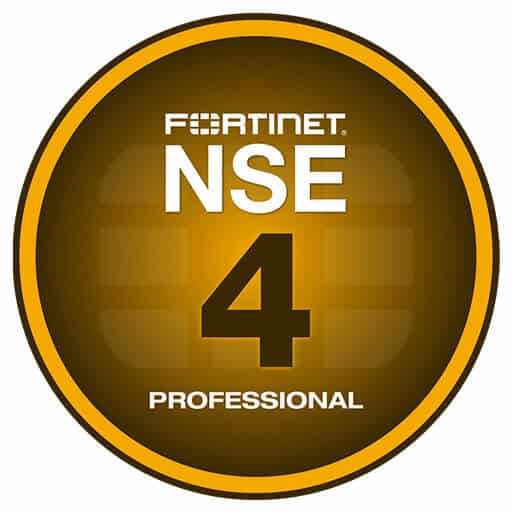
9. Fortinet NSE 4 (Network Security Expert)
Building Expertise in Secure Networking
As cybersecurity continues to dominate priorities for organizations, networking professionals with strong security skills are in high demand. The Fortinet NSE 4 (Network Security Expert) certification is a vendor-specific credential designed to validate your ability to configure, install, and monitor Fortinet’s security-driven networking technologies. It’s an excellent choice for IT professionals specializing in network security.
Why Fortinet NSE 4 Matters in 2025
Fortinet has become a trusted name in cybersecurity, especially for businesses looking for robust solutions to safeguard their networks. Its FortiGate firewalls are used by enterprises, data centers, and service providers around the globe.
NSE 4 is particularly valuable because it focuses on FortiGate’s advanced capabilities, including secure SD-WAN, VPNs, and unified threat management (UTM). With the rise of hybrid cloud environments and increasingly sophisticated cyber threats, this certification is essential for professionals managing security-driven networks.
What Does Fortinet NSE 4 Cover?
The NSE 4 certification equips you with the skills needed to deploy and manage Fortinet’s FortiGate firewalls effectively. Here’s a breakdown of the key topics:
FortiGate Fundamentals
- Understanding FortiOS, Fortinet’s operating system.
- Configuring and managing FortiGate firewalls for network security.
Network Security
- Implementing advanced security features, including intrusion prevention systems (IPS), antivirus, and web filtering.
- Setting up firewall policies, NAT, and SSL inspection.
VPN Configuration
- Configuring site-to-site and client-to-site VPNs for secure connectivity.
Secure SD-WAN
- Managing and optimizing Fortinet’s SD-WAN solutions for performance and security.
System Troubleshooting
- Monitoring network traffic and resolving connectivity or security issues.
Exam Details
Fortinet NSE 4 is a two-part certification that includes:
NSE 4 – FortiOS Infrastructure Exam
- Covers advanced networking and security configurations.
NSE 4 – FortiOS Security Exam
- Focuses on firewall security policies, NAT, and SSL-based VPNs.
Exam Format
- Number of Questions: 60 per exam.
- Duration: 90 minutes per exam.
- Cost: $400 for both exams ($200 each).
Who Should Pursue Fortinet NSE 4?
This certification is ideal for:
- Network Security Engineers: Managing FortiGate firewalls and Fortinet security tools.
- System Administrators: Responsible for securing enterprise networks.
- IT Professionals: Transitioning into network security roles.
Fortinet recommends having six months of experience with FortiGate devices before attempting the exams.
Skills You’ll Gain
By earning the Fortinet NSE 4 certification, you’ll master:
- Configuring and deploying FortiGate firewalls in enterprise networks.
- Setting up secure VPN connections for remote and site-to-site access.
- Implementing advanced security measures to protect against modern cyber threats.
- Managing secure SD-WAN for optimal network performance.
- Troubleshooting issues quickly to minimize downtime.
Career Opportunities
NSE 4-certified professionals are in demand across industries. Common roles include:
- Network Security Engineer: Deploying and maintaining FortiGate solutions.
- IT Security Administrator: Managing and securing enterprise networks.
- Firewall Specialist: Configuring firewalls to protect against threats.
Salaries for NSE 4-certified professionals typically range from $80,000 to $120,000, depending on the role and level of experience.
Study and Preparation
Most candidates spend 2–3 months preparing for the NSE 4 exams. Hands-on experience with FortiGate devices is essential for success.
Recommended Resources
- Fortinet NSE Training Institute: Offers official courses aligned with exam objectives.
- FortiGate Labs: Practice configurations and troubleshooting in a virtual environment.
- Third-Party Platforms: Sites like Udemy provide additional tutorials and practice questions.
Challenges You Might Face
FortiOS Familiarity
If you’re new to Fortinet’s ecosystem, learning FortiOS may take time. Start with the basics and practice using FortiGate’s GUI and CLI extensively.
Advanced Security Configurations
Features like SSL inspection and UTM policies can feel overwhelming. Hands-on practice is key to mastering these concepts.
Why Fortinet NSE 4 Is Relevant in 2025
As cyberattacks become more advanced, organizations need security solutions that integrate seamlessly with their networks. Fortinet’s focus on security-driven networking aligns perfectly with this trend. NSE 4-certified professionals are uniquely positioned to manage these solutions, ensuring secure and efficient network operations.
ROI for Your Career
At $400, Fortinet NSE 4 is a cost-effective certification that positions you as a network security expert. Its focus on FortiGate’s advanced features ensures you’re equipped to handle real-world challenges, making it a valuable addition to your resume.
Final Thoughts
Fortinet NSE 4 isn’t just a certification—it’s a career investment. It’s perfect for professionals who want to specialize in network security and work with one of the most trusted names in the industry. If you’re serious about securing enterprise networks, this cert is a must-have.
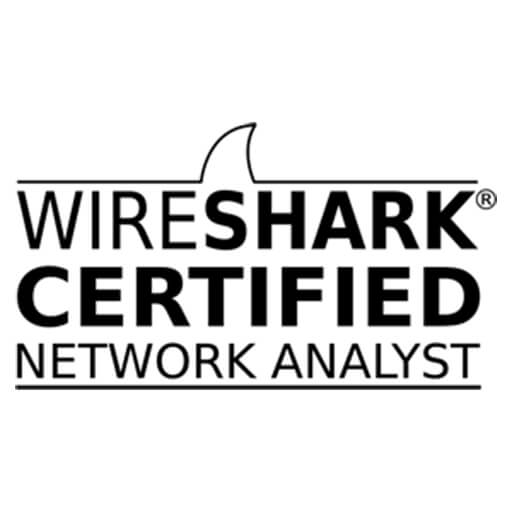
10. Wireshark Certified Network Analyst (WCNA)
Mastering Network Troubleshooting and Analysis
When it comes to understanding network performance and diagnosing issues, Wireshark is the gold standard tool. The Wireshark Certified Network Analyst (WCNA) certification validates your ability to use this powerful tool to analyze and troubleshoot complex networks. Whether you’re a seasoned network professional or just stepping into the world of packet analysis, WCNA is a game-changing certification.
Why WCNA Is Important in 2025
Networks are becoming increasingly complex, with hybrid cloud environments, IoT devices, and SD-WAN architectures making troubleshooting more challenging. WCNA proves you can navigate this complexity by capturing and analyzing traffic at the packet level. It’s not just about identifying problems—it’s about understanding how networks operate down to their core.
Wireshark is widely used across industries for performance tuning, security monitoring, and forensic investigations, making WCNA a versatile certification that enhances your problem-solving capabilities.
What Does WCNA Cover?
WCNA focuses on packet-level network analysis and how to use Wireshark to identify and resolve issues. Here’s what you’ll learn:
Network Protocol Analysis
- Understanding how protocols like TCP, UDP, and HTTP function at a granular level.
- Analyzing DNS, ARP, and DHCP traffic for common issues.
Packet Capture Techniques
- Using Wireshark to capture live network traffic.
- Filtering and organizing packet data for targeted analysis.
Troubleshooting and Performance Tuning
- Diagnosing latency, dropped packets, and other performance bottlenecks.
- Identifying root causes of connectivity issues.
Network Security Monitoring
- Detecting unusual traffic patterns and potential intrusions.
- Analyzing encrypted traffic and understanding SSL/TLS handshakes.
Exam Details
The WCNA exam is straightforward but requires a solid understanding of both networking fundamentals and Wireshark’s capabilities:
- Exam Format: Multiple-choice and performance-based questions.
- Number of Questions: 100.
- Duration: 2 hours.
- Cost: $299.
The exam is available online, making it accessible for professionals worldwide.
Who Should Pursue WCNA?
WCNA is suitable for anyone working in network administration, security, or engineering roles. Common candidates include:
- Network Engineers: Optimizing performance and diagnosing issues.
- Security Analysts: Using Wireshark for forensic investigations.
- IT Support Professionals: Troubleshooting connectivity problems.
If you’re already familiar with networking basics, WCNA is a natural next step to deepen your skills in packet analysis.
Skills You’ll Master
By earning the WCNA certification, you’ll gain:
- Proficiency in using Wireshark to analyze network traffic.
- The ability to diagnose performance issues and troubleshoot effectively.
- A deeper understanding of network protocols and how they interact.
- Skills to detect and investigate suspicious traffic for security purposes.
Career Opportunities
WCNA-certified professionals are valuable across industries that rely on robust network performance and security. Common roles include:
- Network Performance Analyst: Optimizing network throughput and efficiency.
- Security Operations Center (SOC) Analyst: Monitoring traffic for potential threats.
- Network Administrator: Managing and maintaining healthy network environments.
Salaries for WCNA-certified professionals typically range from $75,000 to $110,000, depending on your role and level of experience.
Study and Preparation
Most candidates spend 6–8 weeks preparing for the WCNA exam. Familiarity with Wireshark’s interface and networking basics is essential for success.
Recommended Resources
- Wireshark University: Offers official training courses and tutorials.
- Wireshark Lab Exercises: Hands-on practice is key—capture and analyze traffic in real-world scenarios.
- Third-Party Training: Platforms like Pluralsight and Udemy provide supplemental materials.
Challenges You Might Face
Packet-Level Analysis
Understanding packet-level data can be overwhelming for beginners. Focus on mastering basic protocols like TCP and DNS before diving into complex captures.
Wireshark’s Features
Wireshark is powerful but can feel intimidating due to its extensive functionality. Spend time practicing with different filters and tools to get comfortable.
Why WCNA Is Relevant in 2025
With networks becoming more dynamic and security threats more sophisticated, the ability to analyze and understand traffic is critical. WCNA ensures you’re equipped to handle these challenges, whether it’s diagnosing performance issues or investigating a potential breach.
As organizations continue to rely on Wireshark for network visibility, this certification positions you as an expert in one of the most essential tools in IT.
ROI for Your Career
At $299, WCNA is an affordable certification with a strong career impact. It’s especially valuable for professionals in roles that involve troubleshooting, performance tuning, or security monitoring, making it a worthwhile investment.
Final Thoughts
The Wireshark Certified Network Analyst certification is perfect for professionals looking to deepen their expertise in network troubleshooting and analysis. It’s hands-on, practical, and directly applicable to real-world scenarios. If you’re ready to elevate your networking skills and tackle complex issues with confidence, WCNA is a must-have certification.
Final Thoughts on the Best Networking Certifications in 2025
Networking certifications are more than just stepping stones—they’re career-defining credentials that showcase your expertise in an ever-evolving tech landscape. In 2025, the demand for skilled networking professionals continues to surge, with businesses relying heavily on advanced infrastructures, secure networks, and seamless cloud integrations.
From foundational certifications like CompTIA Network+ and CCNA to highly specialized ones like CCIE and AWS Certified Advanced Networking – Specialty, each certification on this list serves a unique purpose. Whether you’re a beginner eager to break into networking or a seasoned professional looking to master advanced concepts like SD-WAN, hybrid cloud, or packet analysis, there’s a certification tailored to your goals.
Investing in one of these certifications not only equips you with relevant technical skills but also opens doors to high-paying roles and opportunities to work on cutting-edge technologies. With options spanning routing, wireless networking, security, and cloud integration, the right certification can set you apart in this competitive field.
The key to choosing lies in aligning the certification with your career aspirations, industry requirements, and the technologies you’re passionate about. As networking becomes the backbone of digital transformation, these certifications will help you stay ahead of the curve and lead in your field.




